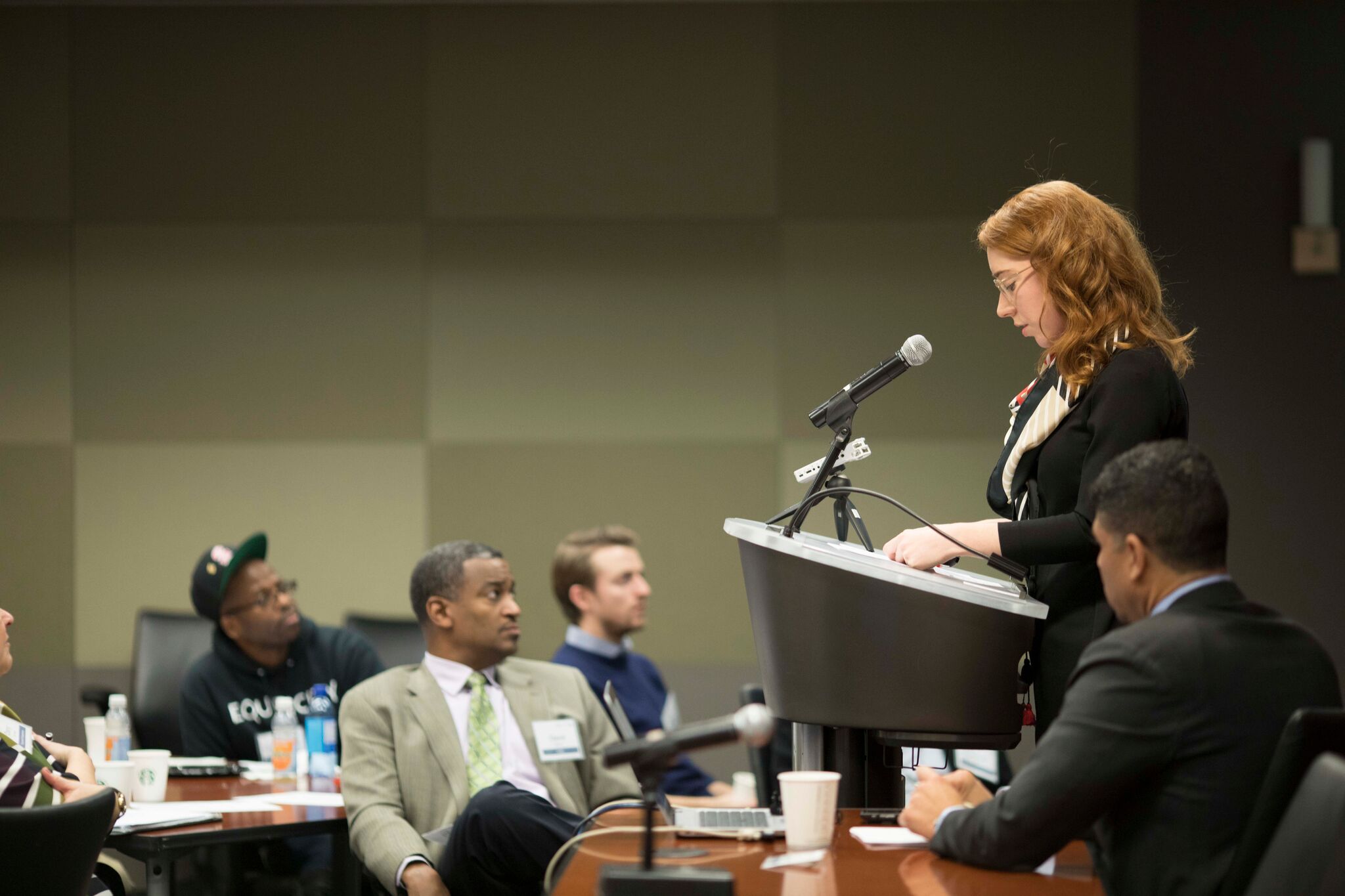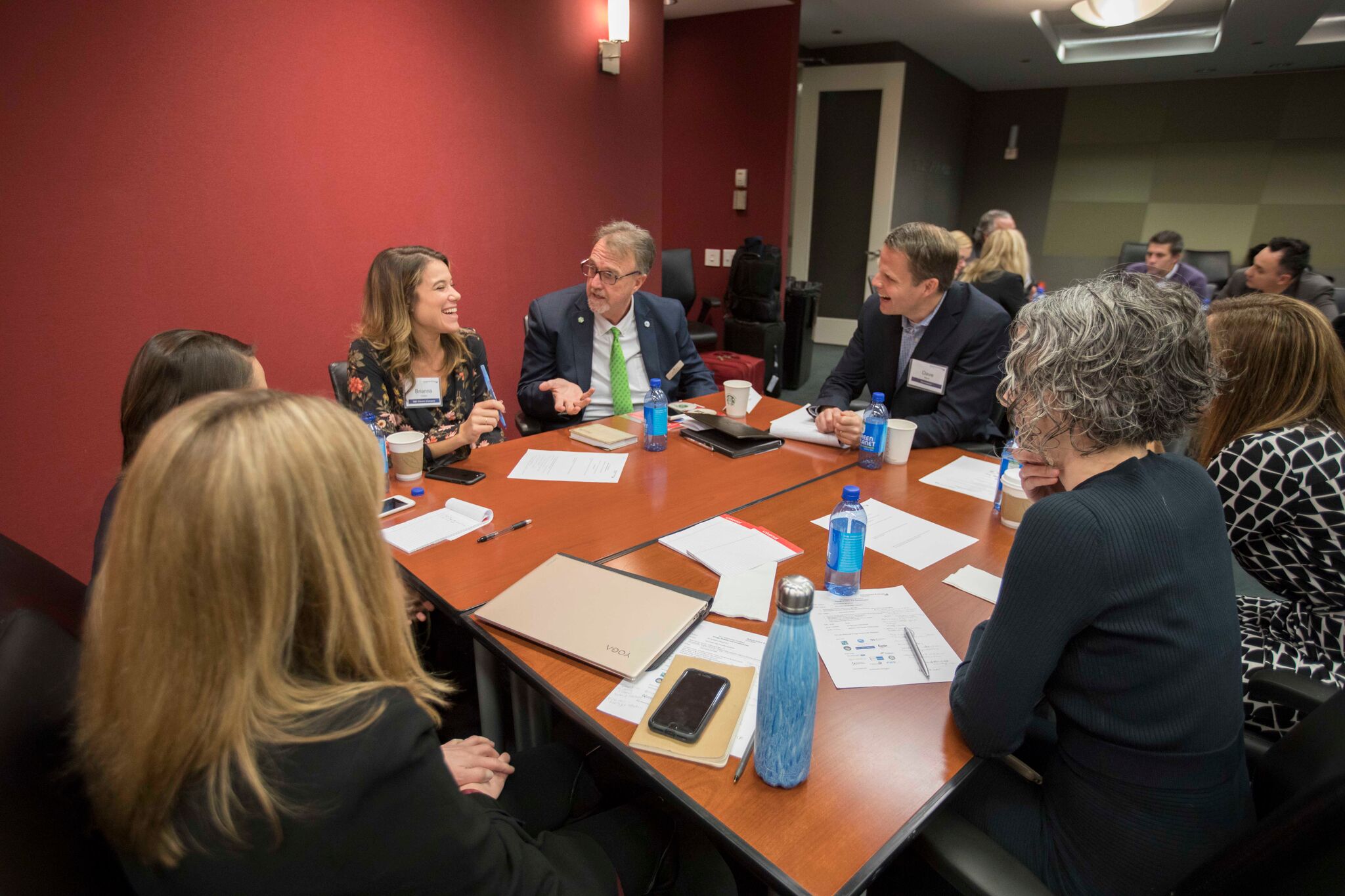-Eric Boria, Guest writer
I’m very grateful for the opportunity to be a part of the Advanced Energy Group breakfast in Chicago. By promoting dialogue outside of one’s usual profession, these are exactly the kind of events that advance a more comprehensive understanding of the issues. As we saw at the Chicago AEG breakfast, the value of bringing together stakeholders from diverse backgrounds, but all focused on solving common problems, is in collectively producing ideas that are more novel and robust than we can do alone.
To kick off the breakfast and prepare everyone to think through the problems together, H.G. Chissell reminded us, with a very personal story, of the importance and urgency of tackling these pressing energy issues. This is an important reminder that these are not disconnected issues that are somewhere else to be solved when we can, but are here, connected to the way we live and affect us on a personal level.
Collaboration between stakeholders from different professions is not only a benefit to collective problem-solving, but is needed to make the important energy decisions of today. It is often counterproductive to think about environmental and social impacts in a narrow sense and address each issue as an independent piece. Interventions in one area can have effects in quite another. These effects are interconnected, thus proposed solutions need to be aware of these interactions as well and provide more comprehensive solutions that intervene in multiple areas.
So how do we go about thinking about energy issues more broadly and help people choose more sustainable options? For many, sustainable options need to be perceived as convenient and affordable. However, we need to be aware of the policies that underlie the prices of sustainable and traditional options and prevent us from making the change that is so urgently needed. One step further, we need to think about how commuters get to work and why they choose to live in one place yet work in another. Broadly considering these kinds of interconnected issues will raise questions that cross professions - from building design, transportation, urban planning and policy – and push us to think about the goals we want to achieve. Consider the following questions:
· Is our goal to shift to renewable energy so that we can continue living as we currently do, or should we change policies that continue to encourage unsustainable levels of consumption?
· Are our collective transportation goals to simply exchange internal combustion vehicles for the same number of electric vehicles or would we be better off with a goal of increasing ridership on electric powered public transit?
· For the long term, are we building our cities in ways that increase or decrease energy consumption behavior?
· How many of our goals rely on producing technological solutions without placing enough effort to make sure that technological advances are not implemented in ways that undermine their original goals?
· Are we properly incentivizing those who will respond positively and enforcing with those who need it?
· Do we have compatibility between our goals for what can be done on the level of the city and goals that need to be accomplished on a larger scale?
It is understandable to be overwhelmed with the scope of the problem and the scale of the solution needed, but to see this as “too many things that need to be done” is just a matter of perspective. Viewed differently, it means that all of us, in our various professions, have the opportunity to work towards a solution. There is something that all of us can do. But it cannot be disconnected from collective efforts. To make sure that effort in one area doesn’t shift the problem to another, thus collectively taking a step back for every step forward, dialogue across disciplines and professions is necessary to make sure our individual efforts are aligned in a common direction and we are able to adapt if we find that we are creating negative impacts in other areas. With the significant and wide-reaching problems we face and the urgency to find solutions, AEG fosters the kind of face-to-face dialogues to find robust solutions and give us faith in the ability of humans to tackle these problems.
Advanced Energy Group is a stakeholder member-supported organization committed to developing and delivering advanced energy policies and solutions in key cities. Stakeholder sessions are by invitation only. For details of our programming please visit:
AEG Event Calendar | AEG Podcasts | AEG Videos on Vimeo | AEG LinkedIn | AEG Twitter




